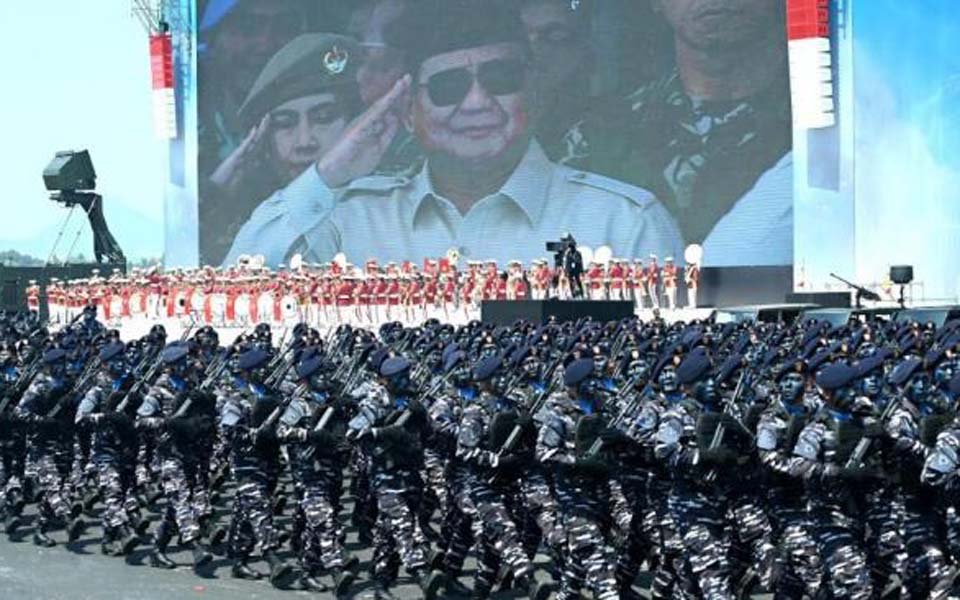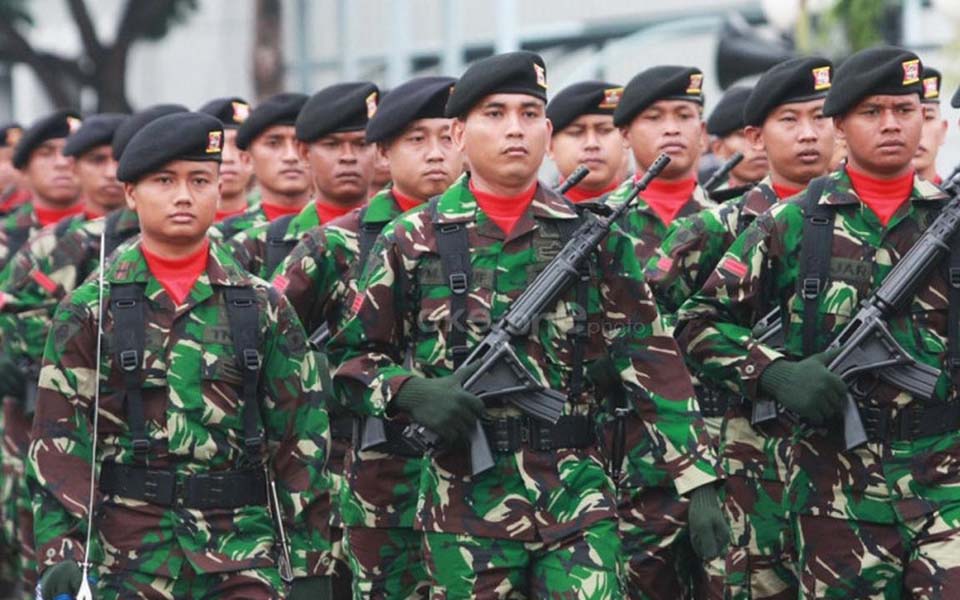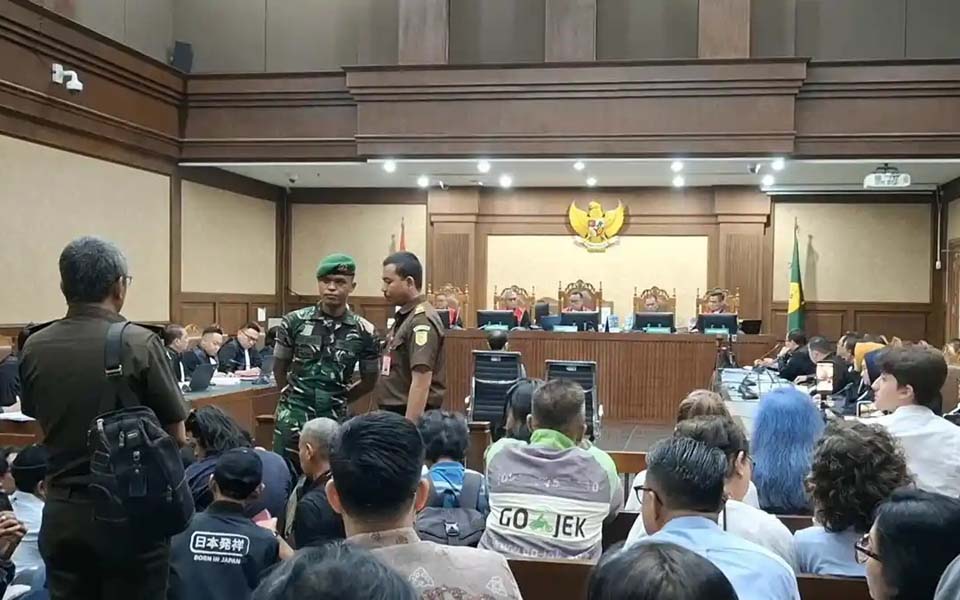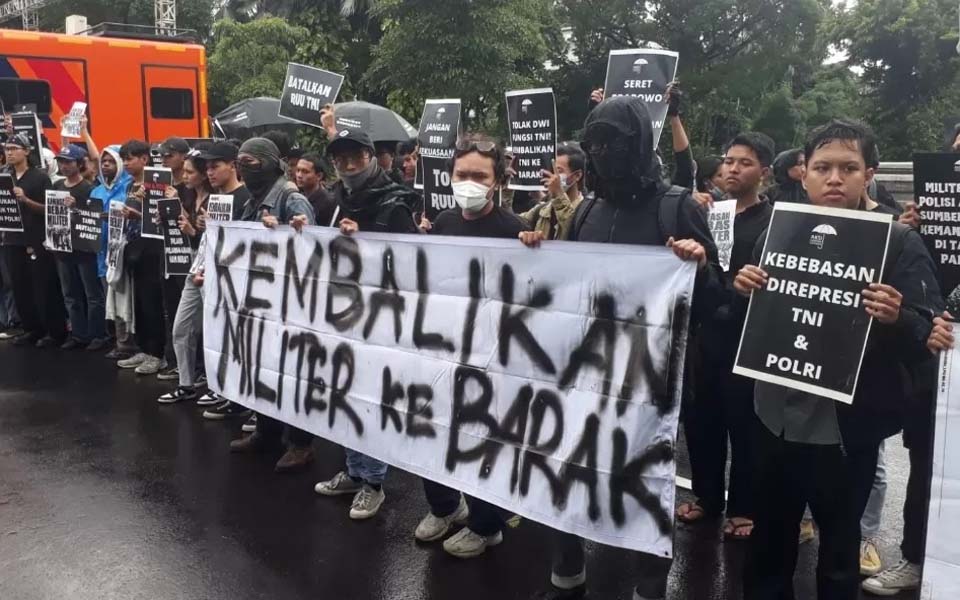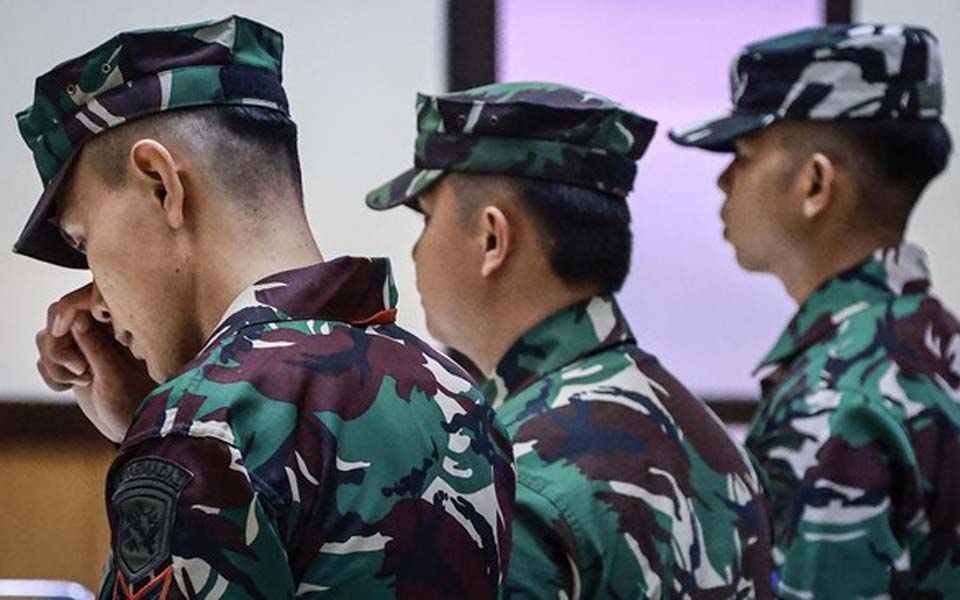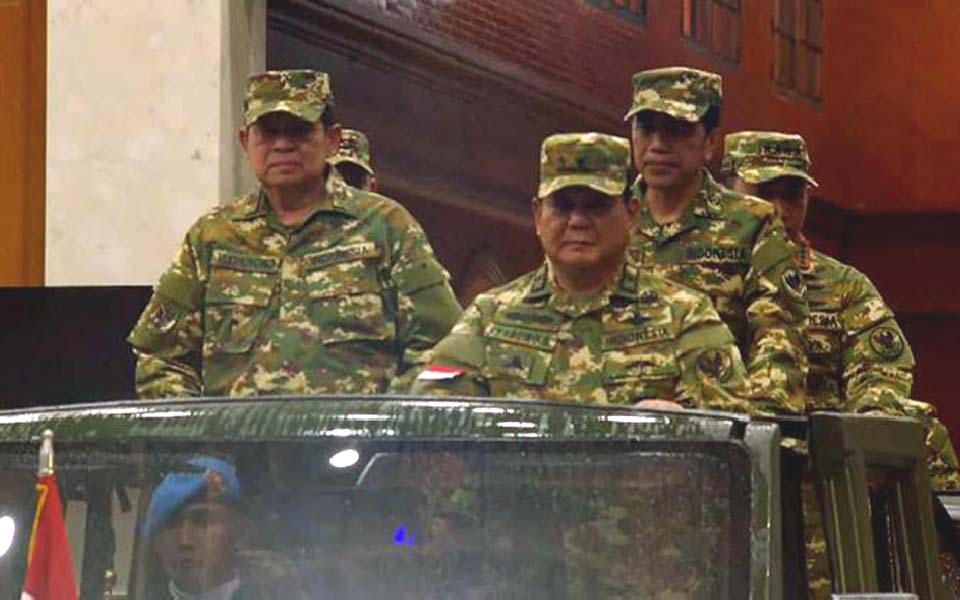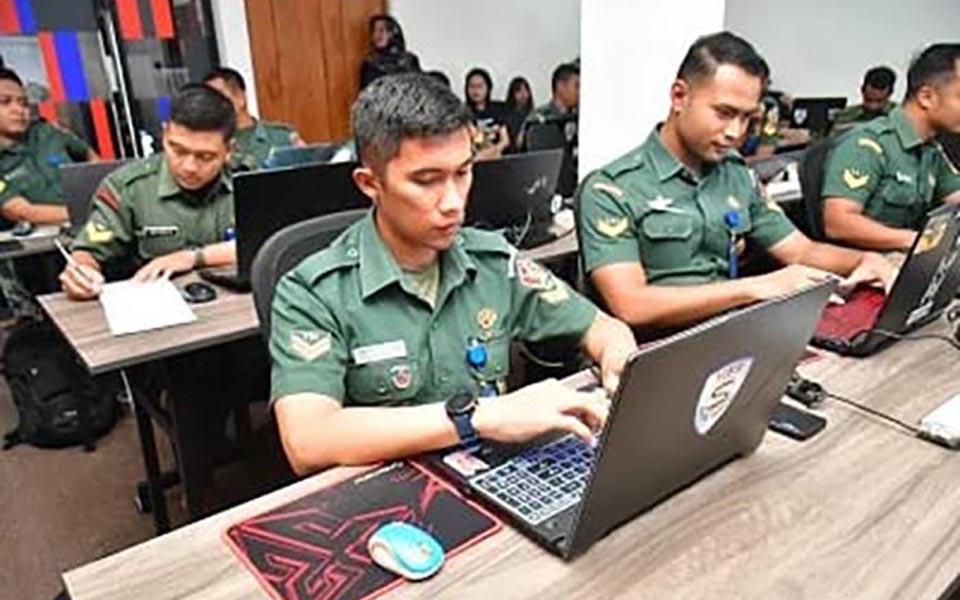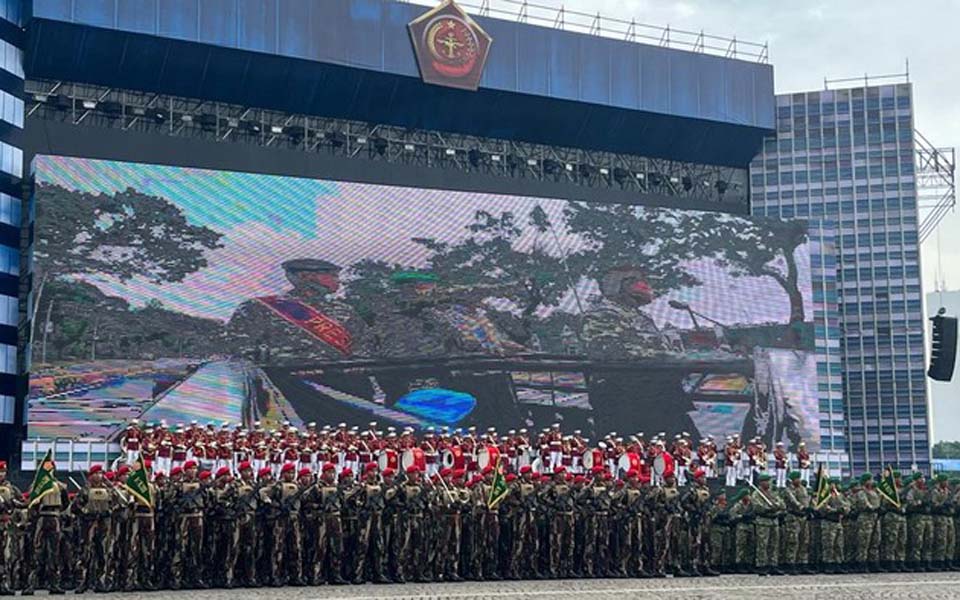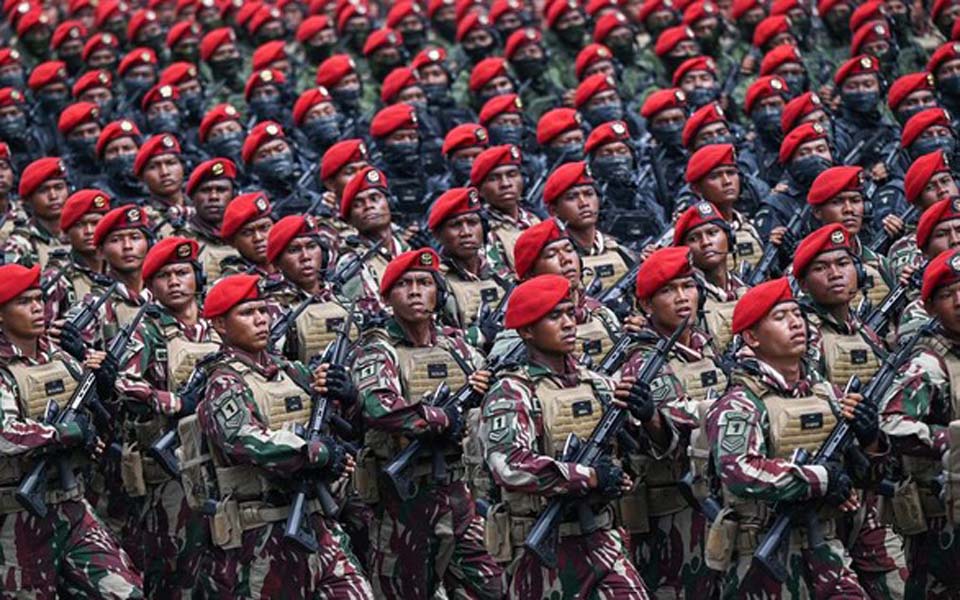In the lead up to the first year of the administration of President Prabowo Subianto, civil-military relations in Indonesia are showing a setback. The strengthening of the institution and the role of the military, accompanied by military infrastructure development that has expanded its influence in the civilian realm, while space for civil oversight is narrowing, has the potential to worsen the problem of impunity in the military body.
This situation has of course not happened in an empty space. The development of military organisations should only be a continuation of how the government builds its defence orientation, posture policies and its defence strategies in the short, medium and long term.
However, since he was appointed as Defence Minister under the previous administration of former president Joko "Jokowi" Widodo, Prabowo Subianto has never drafted a Strategic Defence Review or a Defence White Book as a blueprint for the direction of Indonesian defence policy. This is important, considering that building the country's defence forces cannot be done in a short time or be rushed in order to avoid certain deviations and subjectivity.
The development of this structure and organisation, especially the addition of six new territorial commands, shows that the defence orientation still refers to domestic dynamics (inward looking) and has not yet seen a need to address global dynamics and development (outward looking). Moreover, the addition of territorial command structures is not in line with the spirit of TNI (Indonesian Military) reform and the spirit in the TNI Law. The abolition of ABRI's (as the TNI was known under Suharto's New Order regime) dual socio-political (dwi-fungsi) doctrine should result in the territorial command structure being restructured or reduced. Unfortunately, what is happening now is that it is being augmented, not reduced, and this is a problem. Especially in the elucidation section of the TNI Law, where it is clearly says that the TNI's power must not follow or duplicate the civilian government structure.
The Civil Society Coalition for Security Sector Reform considers that President Prabowo's political move in developing military organisation is a tangible manifestation of the strengthening of militarism, as well as reflecting a self-fulfilling prophecy as predicted since the beginning of his administration. The Coalition's analysis is that this policy gives rise to a number of problems:
First, the management of military organisations is increasingly pragmatic and only oriented towards the interests of the military elite. Additional organisational structure and development is carried out solely to overcome the accumulation of middle- and high-ranking officers in the body of the TNI, without considering the implications, impact and burden on the state budget. This policy is also not based on a new posture or defence strategy or oriented towards democratic values. In addition, the additional military infrastructure will require the recruitment of new personnel who actually have the potential to further worsen the management of human resources within the military environment.
Second, this policy will trigger a blowout in the defence budget. Organisational development has implications for increasing the burden of spending in the defence sector, while up until now the defence budget is already burdened by routine and operational expenditure. As a result, meeting priority needs such as the modernisation of primary defence equipment (alutsista) and improving the welfare of soldiers has become increasingly difficult.
Third, this policy expands the role of military in the non-military domain. The formation of 100 territorial battalions, 20 development territorial brigades, as well as the management of reserve components will weaken the capacity of civilian institutions in the governance of the state, as well as eroding military professionalism in carrying out its main tasks as a means of national defence.
In addition to this, the determination of the development of this new military posture was carried out during an Operational and Military Honours Parade at the Army's Special Forces (Kopassus) Training and Education Centre in Batujajar, West Java, on Sunday August 10, where there were other problems, namely the awarding of individuals that we believe are problematic. Prabowo awarded the honorary rank of Lieutenant General to retired Major General Chairawan K. Nusyirwan. Yet Nusyirwan was a former commander of the Kopassus Group IV in 1997-98, whose name emerged in testimony at the military trial of a figure who allegedly ordered the abduction of pro-democracy activists by the Rose Team, even though he has never been tried over these accusations.
Therefore the Civil Society Coalition for Security Sector Reform is urging that:
1. President Prabowo Subianto halts the expansion of the territorial command structure that is not in line with the spirit of TNI reform and the TNI Law.
2. The government must cancel the additional six new territorial commands and military restructuring must be directed at reducing structures that duplicate civilian government organisation. Defence policies must be based on a Strategic Defence Review and White Defence Book that are prepared in a manner that is transparent, participatory and oriented to long-term national defence interests, not the interests of the military elite.
3. The government should prioritise the defence budget for the modernisation of primary defence equipment and the welfare of soldiers, not expanding the military bureaucratic structure.
4. All military organisation development policies should be strictly analysed in terms of budget efficiency, with a focus on increasing a defence capacity that is professional and responsive to global threats, not for the absorption of excessive officers or the formation of units that expand the role of military in the civilian realm.
5. President Prabowo cancel the awarding of individuals suspected of being involved in gross human rights violations.
6. The government ensures that the awarding of honorary ranks always be carried out by paying attention to the track record of integrity and compliance with the principle of human rights. The granting of an honorary rank to Nusyirwan is contrary to the state's commitment to resolving the abduction and forced disappearances of pro-democracy activists in 1997-98, and has the potential to worsen impunity in the military body.
Jakarta – August 10, 2025
Civil Society Coalition for Security Sector Reform
Indonesian Human Rights Watch (Imparsial), the Indonesian Legal Aid Foundation (YLBHI), the Commission for Missing Persons and Victims of Violence (Kontras), the Indonesian Legal Aid and Human Rights Association (PBHI), Amnesty International Indonesia (AII), the Institute for Public Research and Advocacy (ELSAM), Human Right Working Group (HRWG), the Indonesian Form for the Environment (Walhi), the Setara Institute for Peace and Democracy, Centra Initiative, the Jakarta Legal Aid Foundation (LBH), the Legal Aid Institute for the Press (LBH Pers), the Community Legal Aid Institute (LBH Masyarakat), the Malang Post Surabaya LBH, the Democratic Alliance for Papua (ALDP), Public Virtue, the Institute for Criminal Justice Reform (ICJR), the Jakarta Alliance of Independent Journalists (AJI), the Nusantara Indigenous Community Defence Association (PPMAN), the All Indonesia Student Executive Council (BEM SI) and Dejure.
Contact persons:
1. Ardi Manto (Director Imparsial)
2. Usman Hamid (Director Amnesty International Indonesia)
3. Daniel Awigra (Director HRWG)
4. Dimas Bagus Arya (Coordinator Kontras)
5. Julius Ibrani (Chairperson PBHI)
6. M. Isnur (Director YLBHI)
7. Al Araf (Centra Initiative management body chairperson)
8. Bhatara Ibnu Reza (DeJure Executive Director)
[Translated by James Balowski. The original title of the article was "Militerisasi dan Impunitas: Ancaman Serius bagi Masa Depan Demokrasi dan Reformasi Sektor Keamanan".]





